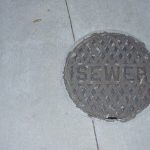Maintaining the integrity of your home plumbing system is essential and backflow testing is a crucial part of the process. The flow within the plumbing system needs to run in a single direction and if a failure occurs it can lead to a flow of water in the opposite direction. As you might imagine, waste water and sewage flowing back into your home is undesirable because it’s unsanitary and hard to clean safely. If you have backlow issues, you may have contaminated water that isn’t safe to drink or use. The best way to keep your home plumbing system working smoothly is to get your backflow device checked.
Backflow Problems Explained
The first thing to understand is that there are a number of different backflow device types available. If your plumbing system is installed in a commercial or residential property, it’s likely to vary in the function and strength of the backflow device. If you have a fire suppression or irrigation system, a larger boiler and other features, you may have a backflow device for each of these systems in place.
A backflow problem related to an irrigation system can cause drinking water contamination due to the presence of pesticides. A fire suppression system can cause the trapping of water in the system for a prolonged period of time. Trapped water can grow stagnant, bacteria can build up and other harmful contaminants may be present. This water stagnation problem is also possible with a larger boiler that hasn’t been used for a while. As you might imagine, any backflow device failure in these systems can cause contamination in your home or commercial property.
The most common problem with a residential backflow device failure is the flowing of sewage and wastewater into your home. This is a hard problem to deal with safely, rubber gloves must be worn at all times and waste must be safely removed. Thoroughly cleaning the affected areas with bleach is required to remove any bacteria on those surfaces. For these reasons prevention is certainly more desirable than the cure and this is why backflow testing is important.
Do I Need a Certified Plumber?
The short answer is yes, although an amateur or DIY approach may be successful, it’s easy to make a mistake when dealing with complex plumbing problems. Fixing a leaking faucet or clearing a simple drain clog are a different magnitude in terms of complexity when you’re dealing with a backflow device. In fact, many backflow issues are not even caused by the device itself and there may be other factors in play. Plumbing issues, such as: water pressure changes, hidden leaks and pipe breaks can all cause backflow issues.
Hiring a local certified professional plumber makes good sense when you want to get your backflow device tested. They have received formal training to deal with a wide variety of backflow devices in residential and commercial plumbing systems. They can survey your entire plumbing system to locate potential problems and fix them early.





